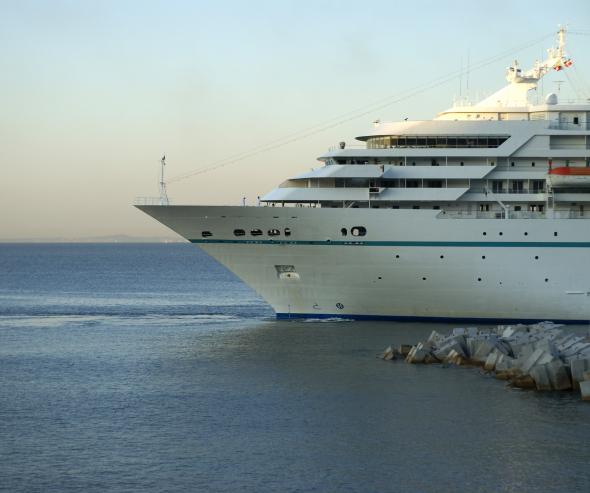6 April 2007: Renewal of public service delegation contract / Corsica-Marseilles

New referral by Corsica Ferries: Conseil de la concurrence
does not order interim measures but decides to continue the examination on the merits
Following a referral by Corsica Ferries against practices implemented by CMN (Compagnie Méridionale de Navigation) and SNCM (Société de Navigation Martime Corse Méditerranée), the Conseil de la concurrence has issued a decision in which it rejects the request for interim measures but decides to continue a partial examination of the case on the merits.
Background
As part of the renewal of public service delegation contract for the servicing of Corsica by water transport from Marseille harbour, Corsica territorial authority launched in August 2006 a first tender offer.
Contesting the content of the offer made by the SNCM and the development of the procedure, the companies Corsica Ferries and CMN (which presented themselves as a group) had simultaneously submitted a referral to the Conseil de la concurrence and the administrative court. These proceedings led, on the one hand, to interim measures by the Conseil de la concurrence on December 11th 2006 and, on the other hand, to the invalidation of the bid by the Conseil d'Etat on December 15th 2006.
In order to ensure territorial continuity, the Assembly of Corsica decided to extend the current delegation until April 30th 2007 and to bring into service the new public service delegation on May 1st 2007.
Within this new framework, Corsica Office of transport registered two offers in February 2007:
· A common group offer from SNCM and CMN
· An offer from Corsica Ferries, concerning the lines Ajaccio, Propriano and Porto Vecchio
The facts denounced by Corsica Ferries
In its referral, the Corsica Ferries denounces the creation of a group between SNCM and CMN, which, according to the company would have no technical nor economical justification and the aim of which would be to dry up competition and to reduce considerably the competitive pressure which it is likely to exert in the tender offer.
Moreover Corsica Ferries accuses SNCM and CMN to have abused their collective dominant position in order to require an excessive level of subsidies, which is obviously disproportionate with the levels required by the SNCM as part of its previous global offer in 2006. Corsica Ferries stresses that this level of subsidy introduces a risk of crossed subsidy between the delegated management business of the public service of Marseilles harbour and the exploitation of lines from Nice and Toulon, on which the company is very active.
The Conseil de la concurrence decides to continue partially the examination
As regards the issue of the group, the Conseil de la concurrence considers that the anticompetitive object of the group does not stem from the examination of the justifications put forward for its creation and that the union of the SNCM and the CMN responds to a technical complementarity, which is objectively justified. The group increases the chances of success in the tender offer organised by the collectivity and is likely to improve the provided service, if the need arises (more flexibility, optimization of shipping activity, better guarantee of service continuity in case of social disruption).
As regards the issue of exploitation abuse by the SNCM alone or jointly with the CMN, the Conseil de la concurrence considers however that its existence cannot be excluded, given the very high level of the first offer made by the group, which was allowed by the substantial market power held by the SNCM:
· the offer made by the group SNCM /CMN in February 2007 was approximately 30% higher than the offer of the SNCM alone during the previous tender offer and to the subsidy which is currently granted to the group by the local authority.
· The SNCM holds an indisputable market power resulting from the fact that it is the current service provider of shipping transport between Marseilles and Corsica; that it has its own resources designed for these missions or which have been adapted, during the years, to their specificities, that it is aware of the fact that it cannot be ignored in the allocation of the new delegation; and finally that it has a powerful persuasion weapon with the “return clause”, which had been negotiated during its privatisation (the State granted the buyers the possibility to come out of SNCM capital if the public service delegation was not to be entirely renewed, for the benefit of the latter).
In March 2007, after negotiations with the local authority and while the examination of the request for interim measures was in progress, the group significantly reduced its offer to reach a subsidy level closer to the one, which had been required in 2006 under similar conditions.
All these elements led the Conseil de la concurrence to wish that the practices of abuse of exploitation criticized by the plaintiff -in the short and changing context which surrounded the referral- will be examined on the merits.
However the Conseil de la concurrence has not ordered the interim measures required, considering that some of them had no justification (as regards the issue of the group) and some were irrelevant (as regards the protection against a potential exploitation abuse).
